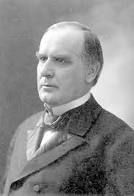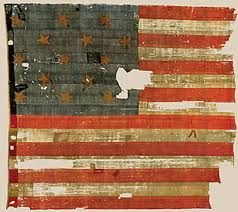Author's posts
Sep 15 2010
Punting the Pundits
“Punting the Pundits” is an Open Thread. It is a selection of editorials and opinions from around the news medium and the t internet blogs. The intent is to provide a forum for your reactions and opinions, not just to the opinions presented, but to what ever you find important.
Katrina vanden Heuvel: Enough with the partisan posturing
Will the 2010 election campaign provide us with a debate worthy of a great nation in trouble? The early harbingers aren’t good. The pundit herd has already declared the election over, with only the scope of the Democratic reverses yet in question. The two parties are gearing up for a fierce debate on whether to extend the Bush tax cuts to everyone including the wealthiest 2 percent or merely to everyone except the very rich.
We can’t afford this partisan posturing. Fifteen million Americans are unemployed. Poverty is up. One in four homes is under water, worth less than what is owed on it. Voters deserve a serious debate about what is to be done. And what are the choices that the two parties present?
Eugene Robinson: Christine O’Donnell’s win is the GOP’s loss
When you ride a tiger, you go wherever the tiger wants to go – even off a cliff.
The Republican Party – viewed less favorably by voters than even the Democrats, according to polls – has been planning to win in November by harnessing the energy and passion of the Tea Party movement. But tonight’s stunning result in Delaware demonstrates that the Tea Party will go wherever it chooses, heedless of Republican strategists’ grand design.
Christine O’Donnell’s victory over Rep. Mike Castle in the Senate primary is a huge political story. How huge? This one race, in one of the nation’s smallest and least populous states, comes pretty close to wiping out the possibility of the Republicans taking control of the Senate in November.
That’s because any reasonable scenario giving the GOP a Senate majority involves capturing the Senate seat that used to belong to Vice President Biden. Castle, a veteran congressman, would have been favored to win – perhaps easily – in the general election. He is Delaware’s kind of Republican: fiscally conservative but moderate on social issues. He’s pro-choice and he favors gun control, in keeping with the attitudes and values of his state.
Sep 15 2010
In Prison Forever Without Trial
If this sounds like something out of a Dumas novel, imprisoned on the word of an unknown person without charges, no legal representation or trial, held on an isolated island in a tiny cell with the only contact your jailers who are free to torture and torment you and your fellow inmates, you’d be wrong. This is the military prison at Guantanamo Naval Base in Cuba where the United States has held people from all over the world who have been charged as enemy combatants since 9/11 during the never ending, nebulous “war on terror”. President Obama promised during his campaign to close it and after his inauguration, he set a deadline of one year to shut it down that has come and gone months ago.
In a Washington Post Op-Ed, Jack Goldsmith, a Harvard Law School professor who served as an assistant attorney general in the George W. Bush administration, has some suggestions for the dilemma that Guantanamo poses, not all of them are legal or constitutional. There are two problems that Mr. Goldsmith attempts to address, closing Guantanamo and trials for the detainees.
Jack Goldsmith: A way past the terrorist detention gridlock
Nine years after Sept. 11 and 20 months into the Obama presidency, our nation is still flummoxed about what to do with captured terrorists. The Obama administration is stuck about where the Bush administration was, with little hope in sight for progress.
Guantanamo Bay has proved harder to close than the Obama administration anticipated. Many terrorists there are too dangerous to release and, for a variety of evidentiary reasons, cannot be brought to trial. Our allies have taken fewer detainees than we would like. These men will thus have to be held in U.S. custody. But neither Congress nor the American people is keen on transferring them to the United States…..
Difficulties with trials have left the Obama administration, like its predecessor, relying primarily on military detention without trial to hold terrorists. Courts have given their general blessing to military detention as a legitimate form of terrorist incapacitation. But military detention still raises hard legal questions, about which Congress has said practically nothing. As a result, unaccountable judges are making fateful detention decisions, demanding release of some whom the administration thinks are dangerous terrorists. President Obama pledged last May to seek congressional clarity on detention but has yet to follow through. The abundant dysfunctions in our system for incapacitating terrorists have led to increased reliance on targeted killings and outsourced renditions, neither of which is optimal from an intelligence-gathering perspective. . . .
First, give up on closing the Guantanamo Bay facility.
Second, acknowledge that military detention will remain the primary basis for holding terrorists, and strengthen the system.
Third, stop using military commissions, which are a good idea in theory but have for nine years proved unworkable in practice.
Fourth, separate the legitimacy of civilian trials from the security of such trials.
Fourth, separate the legitimacy of civilian trials from the security of such trials.
Sep 15 2010
On This Day in History: September 15
This is your morning Open Thread. Pour your favorite beverage and review the past and comment on the future.
September 15 is the 258th day of the year (259th in leap years) in the Gregorian calendar. There are 107 days remaining until the end of the year.

On this day in 1963, a bomb explodes during Sunday morning services in the 16th Street Baptist Church in Birmingham, Alabama, killing four young girls.
The 16th Street Baptist Church bombing was a racially motivated terrorist attack on September 15, 1963, by members of a Ku Klux Klan group in Birmingham, Alabama in the United States. The bombing of the African-American church resulted in the deaths of four girls. Although city leaders had reached a settlement in May with demonstrators and started to integrate public places, not everyone agreed with ending segregation. Other acts of violence followed the settlement. The bombing increased support for people working for civil rights. It marked a turning point in the U.S. 1960s Civil Rights Movement and contributed to support for passage of the Civil Rights Act of 1964. The three-story Sixteenth Street Baptist Church in Birmingham, Alabama was a rallying point for civil rights activities through the spring of 1963, and is where the students who marched out of the church to be arrested during the 1963 Birmingham campaign’s Children’s Crusade were trained. The demonstrations led to an agreement in May between the city’s African-American leaders and the Southern Christian Leadership Conference (SCLC) to integrate public facilities in the country.
In the early morning of Sunday, September 15, 1963, Bobby Frank Cherry, Thomas Blanton, Herman Frank Cash, and Robert Chambliss, members of United Klans of America, a Ku Klux Klan group, planted a box of dynamite with a time delay under the steps of the church, near the basement.
At about 10:22 a.m., when twenty-six children were walking into the basement assembly room for closing prayers of a sermon entitled “The Love That Forgives,” the bomb exploded. According to an interview on NPR on September 15, 2008, Denise McNair’s father stated that the sermon never took place because of the bombing. Four girls, Addie Mae Collins (aged 14), Denise McNair (aged 11), Carole Robertson (aged 14), and Cynthia Wesley (aged 14), were killed in the attack, and 22 additional people were injured, one of whom was Addie Mae Collins’ younger sister, Sarah.
The explosion blew a hole in the church’s rear wall, destroyed the back steps, and left intact only the frames of all but one stained-glass window. The lone window that survived the concussion was one in which Jesus Christ was depicted knocking on a door, although Christ’s face was destroyed. In addition, five cars behind the church were damaged, two of which were destroyed, while windows in the laundromat across the street were blown out.
Sep 14 2010
Punting the Pundits
“Punting the Pundits” is an Open Thread. It is a selection of editorials and opinions from around the news medium and the t internet blogs. The intent is to provide a forum for your reactions and opinions, not just to the opinions presented, but to what ever you find important.
Dean Baker: The Soft Bigotry of Incredibly Low Expectations: The Case of Economists
In a country with almost 15 million people out of work, it is amazing that any economists still have jobs. This one is their fault first and foremost. Economists are supposed to know about the economy and provide advice on how to avoid disasters before they happen and help us recover from the bad things happen in spite of good advice.
The economics profession has not done well on this simple scorecard. Remarkably, rather than improve their game, economists are now busy dampening down expectations so that the public will not hold them responsible for the state of the economy.
Towards this end, a group of Fed economists recently put out a new studyclaiming that it was impossible for economists to recognize the $8 trillion housing bubble before it wrecked the economy. In effect, they argued that economists should not be blamed for this failure because:
“The state-of-the-art tools of economic science were not capable of predicting with any degree of certainty the collapse of U.S. house prices that started in 2006.”
This raises the obvious question: if economists can’t see an $8 trillion housing bubble, what can they see? This is bit like the firehouse where everyone sits around calmly sipping their coffee as the school across the street burns down. Completely missing the largest financial bubble in the history of the world is pretty inexcusable, even if economists continue to make excuses.
Bob Herbert: A Recovery’s Long Odds
We can keep wishing and hoping for a powerful economic recovery to pull the U.S. out of its doldrums, but I wouldn’t count on it. Ordinary American families no longer have the purchasing power to build a strong recovery and keep it going.
Americans are not being honest with themselves about the structural changes in the economy that have bestowed fabulous wealth on a tiny sliver at the top, while undermining the living standards of the middle class and absolutely crushing the poor. Neither the Democrats nor the Republicans have a viable strategy for reversing this dreadful state of affairs. (There is no evidence the G.O.P. even wants to.)
Robert Reich, in his new book, “Aftershock,” gives us one of the clearest explanations to date of what has happened – how the United States went from what he calls “the Great Prosperity” of 1947 to 1975 to the Great Recession that has hobbled the U.S. economy and darkened the future of younger Americans.
Sep 14 2010
On This Day in History: September 14
This is your morning Open Thread. Pour your favorite beverage and review the past and comment on the future.
September 14 is the 257th day of the year (258th in leap years) in the Gregorian calendar. There are 108 days remaining until the end of the year.

On this Day in 1901, U.S. President William McKinley dies after being shot by a deranged anarchist during the Pan-American Exposition in Buffalo, New York.
President and Mrs. McKinley attended the Pan-American Exposition in Buffalo, New York. He delivered a speech about his positions on tariffs and foreign trade on September 5, 1901. The following morning, McKinley visited Niagara Falls before returning to the Exposition. That afternoon McKinley had an engagement to greet the public at the Temple of Music. Standing in line, Leon Frank Czolgosz waited with a pistol in his right hand concealed by a handkerchief. At 4:07 p.m. Czolgosz fired twice at the president. The first bullet grazed the president’s shoulder. The second, however, went through McKinley’s stomach, pancreas, and kidney, and finally lodged in the muscles of his back. The president whispered to his secretary, George Cortelyou “My wife, Cortelyou, be careful how you tell her, oh be careful.” Czolgosz would have fired again, but he was struck by a bystander and then subdued by an enraged crowd. The wounded McKinley even called out “Boys! Don’t let them hurt him!” because the angry crowd beat Czolgosz so severely it looked as if they might kill him on the spot.
One bullet was easily found and extracted, but doctors were unable to locate the second bullet. It was feared that the search for the bullet might cause more harm than good. In addition, McKinley appeared to be recovering, so doctors decided to leave the bullet where it was.
The newly developed x-ray machine was displayed at the fair, but doctors were reluctant to use it on McKinley to search for the bullet because they did not know what side effects it might have on him. The operating room at the exposition’s emergency hospital did not have any electric lighting, even though the exteriors of many of the buildings at the extravagant exposition were covered with thousands of light bulbs. The surgeons were unable to operate by candlelight because of the danger created by the flammable ether used to keep the president unconscious, so doctors were forced to use pans instead to reflect sunlight onto the operating table while they treated McKinley’s wounds.
McKinley’s doctors believed he would recover, and the President convalesced for more than a week in Buffalo at the home of the exposition’s director. On the morning of September 12, he felt strong enough to receive his first food orally since the shooting-toast and a small cup of coffee. However, by afternoon he began to experience discomfort and his condition rapidly worsened. McKinley began to go into shock. At 2:15 a.m. on September 14, 1901, eight days after he was shot, he died from gangrene surrounding his wounds. He was 58. His last words were “It is God’s way; His will be done, not ours.” He was originally buried in West Lawn Cemetery in Canton, Ohio, in the receiving vault. His remains were later reinterred in the McKinley Memorial, also in Canton.
Czolgosz was tried and found guilty of murder, and was executed by electric chair at Auburn Prison on October 29, 1901.
Sep 13 2010
Democrats Framing the Economic Message
I see the Democrats are finally beginning to understand that the key to winning is the need to frame their own message. It’s about time:
“The Obama tax cuts for the middle class”
Call them “the Obama tax cuts for the middle class.”
Top Democratic leaders in the House are discussing using that phrase to rebrand President Obama’s proposed extension of the Bush tax cuts for those making less than $250,000, senior leadership aides tell me.
The use of the phrase has the informal support of Nancy Pelosi and Majority Whip James Clyburn, and Pelosi has used the phrase in private meetings, leadership aides tell me. Rank and file House Dems are privately discussing the phrase. Top Senate aides also like the idea.
Right on. Take the bull by the horns and start taking the credit for the really good ideas. Don’t even mention the name of that President who initiated those cuts that will benefit the middle class if they are extended. Only invoke his name for the deficit inflating cuts for the wealthiest. Remind voters that even the middle class tax cuts will still benefit the rich.
Keeping money in the hands of people who will spend it one of the best ways to stimulate the economy. The House and Senate Democrats on the campaign trail need to make this their top message as a way to stimulate job growth and the economy which will reduce the deficit even further. Take back the word “stimulus” as a positive part of that message.
Make “The Obama Tax Cuts the message” the Democratic message.
Cross posted @ GOS
Sep 13 2010
Punting the Pundits
“Punting the Pundits” is an Open Thread. It is a selection of editorials and opinions from around the news medium and the t internet blogs. The intent is to provide a forum for your reactions and opinions, not just to the opinions presented, but to what ever you find important.
Paul Krugman: China, Japan, America
Last week Japan’s minister of finance declared that he and his colleagues wanted a discussion with China about the latter’s purchases of Japanese bonds, to “examine its intention” – diplomat-speak for “Stop it right now.” The news made me want to bang my head against the wall in frustration.
You see, senior American policy figures have repeatedly balked at doing anything about Chinese currency manipulation, at least in part out of fear that the Chinese would stop buying our bonds. Yet in the current environment, Chinese purchases of our bonds don’t help us – they hurt us. The Japanese understand that. Why don’t we?
Some background: If discussion of Chinese currency policy seems confusing, it’s only because many people don’t want to face up to the stark, simple reality – namely, that China is deliberately keeping its currency artificially weak.
Robert Reich: The Two Categories of American Corporation — and Why it Matters
Some giant American corporations depend on a buoyant American economy and a world-class industrial base in the United States. Others are far less dependent. What comes out of Washington in the next few years will reflect which group has most political clout — especially if Republicans take over the House and capture more of the Senate this November.
The first group includes national telecoms like Verizon and AT&T that need a prosperous America because most of their sales are here. Same with finance companies like Bank of America and Travelers Insurance whose business strategy has been built around U.S. consumers. Ditto for certain giant chains like Home Depot. Naturally, all these companies were especially hard hit by the Great Recession and its devastating impact on American consumers.
The second group includes companies like Coca Cola, Exxon-Mobil, Hewlett-Packard, Intel, and McDonald’s, that get substantial revenues from their overseas operations. Increasingly this means China, India, and Brazil. Ford and GM are still largely dependent on US sales but becoming less so. GM sold more cars in China last year than in the US. Not surprisingly, American companies that are less dependent on American consumers have been showing the biggest profits.
Sep 13 2010
On This Day in History: September 13
This is your morning Open Thread. Pour your favorite beverage and review the past and comment on the future.
September 13 is the 256th day of the year (257th in leap years) in the Gregorian calendar. There are 109 days remaining until the end of the year.
On this day in 1814, Francis Scot Key pens Star-Spangled Banner

“The Star-Spangled Banner“ is the national anthem of the United States of America. The lyrics come from “Defence of Fort McHenry”, a poem written in 1814 by the 35-year-old lawyer and amateur poet, Francis Scott Key, after witnessing the bombardment of Fort McHenry by the British Royal Navy ships in Chesapeake Bay during the Battle of Fort McHenry in the War of 1812.
The poem was set to the tune of a popular British drinking song, written by John Stafford Smith for the Anacreontic Society, a men’s social club in London. “The Anacreontic Song” (or “To Anacreon in Heaven”), with various lyrics, was already popular in the United States. Set to Key’s poem and renamed “The Star-Spangled Banner“, it would soon become a well-known American patriotic song. With a range of one and a half octaves, it is known for being difficult to sing. Although the song has four stanzas, only the first is commonly sung today, with the fourth (“O thus be it ever when free men shall stand…”) added on more formal occasions. In the fourth stanza, Key urged the adoption of “In God is our Trust” as the national motto (“And this be our motto: In God is our Trust”). The United States adopted the motto “In God We Trust” by law in 1956.
“The Star-Spangled Banner” was recognized for official use by the Navy in 1889 and the President in 1916, and was made the national anthem by a congressional resolution on March 3, 1931 (46 Stat. 1508, codified at 36 U.S.C. § 301), which was signed by President Herbert Hoover.
Before 1931, other songs served as the hymns of American officialdom. “Hail, Columbia” served this purpose at official functions for most of the 19th century. “My Country, ‘Tis of Thee“, whose melody was derived from the British national anthem, also served as a de facto anthem before the adoption of “The Star-Spangled Banner.” Following the War of 1812 and subsequent American wars, other songs would emerge to compete for popularity at public events, among them “The Star-Spangled Banner.”
Sep 12 2010
Eat At Your Own Risk
This will be ignored at the risk to food safety, health concerns related to the eating seafood caught in the Gulf and the entire wild life environment.
Scientists on a research vessel in the Gulf of Mexico are finding a substantial layer of oily sediment stretching for dozens of miles in all directions. Their discovery suggests that a lot of oil from the Deepwater Horizon didn’t simply evaporate or dissipate into the water – it has settled to the seafloor.
The Research Vessel Oceanus sailed on Aug. 21 on a mission to figure out what happened to the more than 4 million barrels of oil that gushed into the water. Onboard, Samantha Joye, a professor in the Department of Marine Sciences at the University of Georgia, says she suddenly has a pretty good idea about where a lot of it ended up. It’s showing up in samples of the seafloor, between the well site and the coast.
“I’ve collected literally hundreds of sediment cores from the Gulf of Mexico, including around this area. And I’ve never seen anything like this,” she said in an interview via satellite phone from the boat.
Joye describes seeing layers of oily material – in some places more than 2 inches thick – covering the bottom of the seafloor.
“It’s very fluffy and porous. And there are little tar balls in there you can see that look like microscopic cauliflower heads,” she says.
It isn’t “sexy news” to discuss a higher percentage of cancers for small children who eat Gulf seafood more than once a month. But pointing out to the media that the FDA has flawed testing protocols and have ignored safety concerns is news. NOAA using only 12 shrimp to prove the safety of 5,000 miles of the Gulf should be news to the media.
This Monday the media will be shoveling shrimp into their mouths and they might be concerned for their own health if they aren’t concerned for others.
It’s not my job to care about the little kids and pregnant women eating Gulf seafood. Nine years from now when questions are being asked about sick kids the folks at the FDA can say, “Nobody could have anticipated…”
Where have I heard that line before?
h/t to Peter Daou and spocko @ FDL


Recent Comments